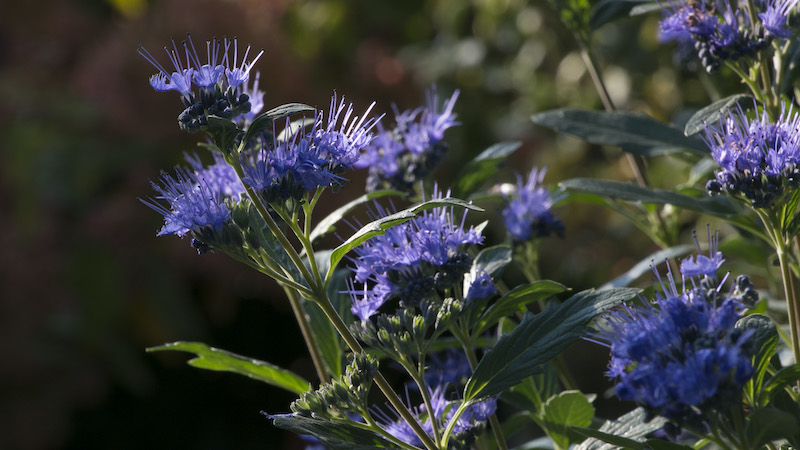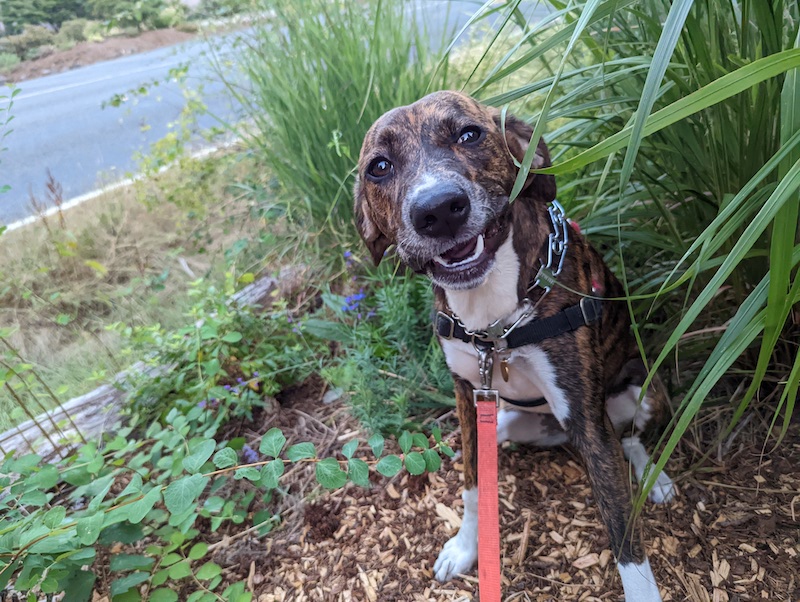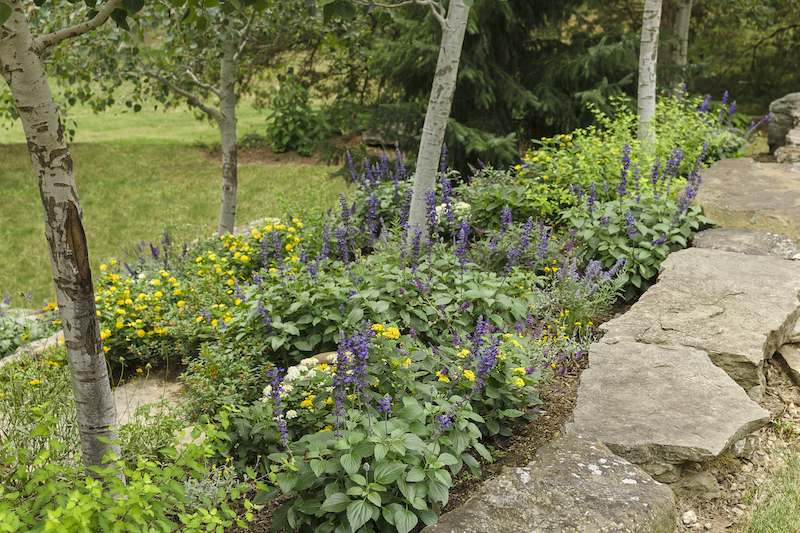Add bold, dazzling color to your landscape with Bluebeard, also known as Caryopteris. The flowering shrub features narrow foliage and brightly colored flowers that grow in clusters. This deciduous shrub adds consistent color to outdoor spaces from late spring into the fall in USDA zones 5 through 9. Bluebeard is non-toxic, making it a safe plant to have around children and pets.

Are Bluebeard Poisonous to Children?
Bluebeard is not poisonous to children and is safe to include in your family’s outdoor space. Touching the foliage or flowers of this plant will not cause skin irritation. Eating the plant is not recommended, and there are no benefits to consuming the plant, but it is not harmful. It is always best to supervise little ones, especially outdoors, but Bluebeard is safe to have around children.
Are Bluebeard Poisonous to Dogs?
Bluebeard is non-toxic to dogs. This flowering shrub is safe if you have a curious puppy or dog. Eating too much of anything can be a problem, but Bluebeard is not poisonous to dogs.

Are Bluebeard Poisonous to Cats?
Bluebeard is cat friendly and will not cause problems for your feline if they consume any part of the plant. The upright growth habit is not likely to entice cats or kittens, but you have no reason to worry should your cat show interest in this plant.
Are Bluebeard Poisonous to Other Animals?
Bluebeard is not poisonous to animals. If eaten, this plant does not provide any health benefits or value, but it will not harm animals.
Symptoms Of Bluebeard Poisoning
Bluebeard is not known to cause any health problems or issues, and this plant is non-toxic. Overeating can cause an upset stomach, so be aware if you notice damage to your plant. Always check with your doctor or veterinarian for guidance if you suspect Bluebeard poisoning.
Preventing Bluebeard Poisoning
It is not ordinarily necessary to protect Bluebeard from animals since this plant is not poisonous and is rarely damaged. If your plant is damaged, try relocating it near a deck or busy area. The proximity to humans may deter foraging animals from getting close. Fencing is another option to keep animals away if necessary.

Pet Poison Helpline
If something were to happen to your furry friend, and you suspect that they are suffering from Bluebeard poisoning, there is a poison control hotline to call for 24/7 vet advice. It is called the Pet Poison Hotline, and their phone number is (855) 764-7661.
Sources: "Popular Fall Plants: Which Ones Are Pet-Friendly?" American Society for the Prevention of Cruelty to Animals. aspca.org
 |
Author Alison Cotsonas - Published 09-01-2022 |
